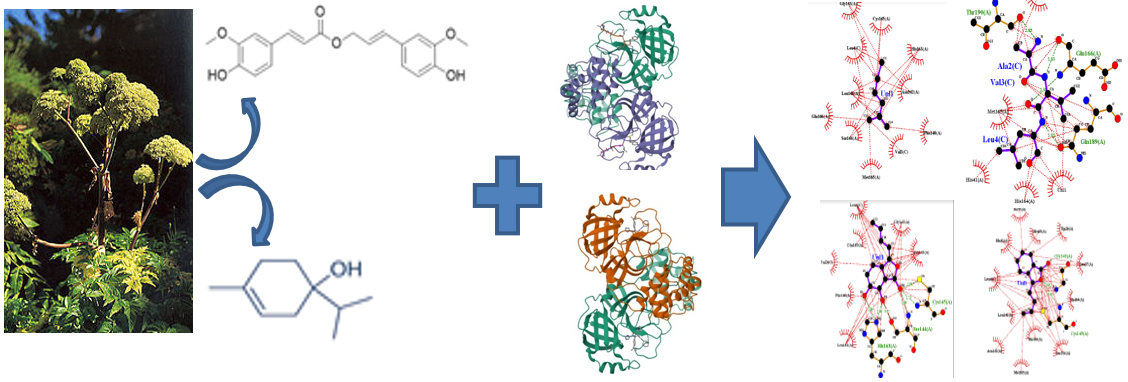Identification of potential phytochemicals of A. archangelica against SARS COV-2 main protease receptor (Retracted)

Keywords:
Covid-19, SARS-COV-2, Molecular docking, PhytochemicalsAbstract
Retraction Note: This article has been marked for retraction. Issue: Conflict of interest / author contributions.
Abstract:
The proteins N and M, 3′-5′ exoribonuclease (nsp14), viral proteases, and RNA dependent RNA polymerase (RdRp) are required for different stages of SARS-CoV-2 viral replication. For many antiviral therapies, these are thus desirable targets. Due of the primary protease's differences from human proteases, it is thought to be a suitable therapeutic target. Numerous antiviral medications have been employed in numerous clinical studies and included in numerous treatment protocols whether it is naturally derived or synthetic.
As they can interfere with the virus' cycle of life, including viral entry, replicating, assembling, and virus-particular host targets, phytochemicals with antiviral characteristics are possible strong weapons in the fight against SAR-CoV-2. Coumarins are one type of phytochemical found in A. archangelica L. that could possibly be utilised to produce an alternative natural antiviral molecule. 46 bioactive phytochemicals selected from A. archangelica therapeutic plant were found to have antiviral effect against SARS-CoV-2 protease. From the screened compounds, Terpinen -4-ol and coniferyl ferulate exhibited strong molecular bonding interaction in molecular docking study with the binding energies (-8.82) to (-10.11) kcal/mol against main protease receptor protein (pdb id: 6lu7 & 6w63) of SARS-CoV2, individually. The major mode of binding is H-bonding majorly with the participation of dynamic spot catalytic residue HIS-41 and CYS-145. Coniferyl ferulate has a maximum binding energy of -10.11 kcal/mol & -11.23 kcal/mol in complexation along the proteases receptor (6lu7 and 6w63). Coniferyl ferulate is a stronger COVID-19 inhibitor, which ought to be investigated as a potential therapeutic target for this virus.
Published
Issue
Section
URN
License
Copyright (c) 2022 Preeti Jain

This work is licensed under a Creative Commons Attribution-NonCommercial-NoDerivatives 4.0 International License.
